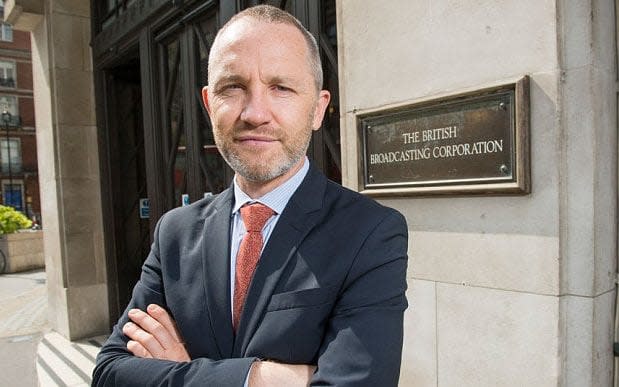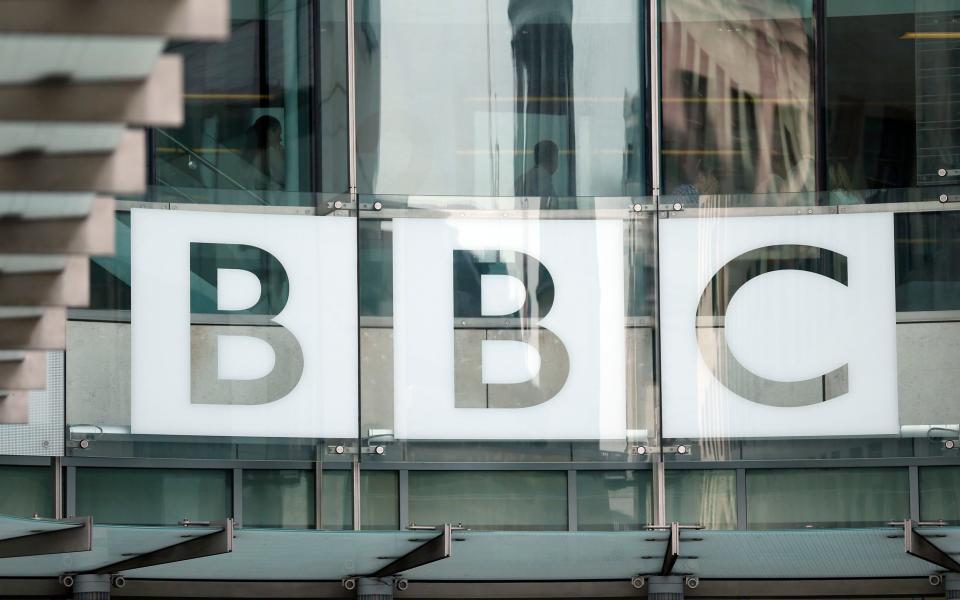BBC demands new laws to give its shows top billing over rivals in television guides

The BBC should be protected by new laws that promote its shows over those of rivals, according to one of the corporation’s most senior executives.
James Purnell, director of radio and education, says that the shows the BBC makes must be given more prominence in television guides than those of commercial services Sky, Amazon and Netflix.
His demands follow a huge change in television viewing habits with more than 6 million households now signed up to streaming services.
Writing for the Telegraph, Mr Purnell warns that the BBC and other public service broadcasters face a “real threat” of losing out in a “golden age” for television.
The issue will be debated in the House of Lords on Monday and Mr Purnell says peers must back a an amendment to force television service providers to give top billing to the corporation.
“If we don’t update the rules, we’re at serious risk of losing something very special about our British culture,” Mr Purnell argues.
“This isn’t about forcing people to watch public service programmes, or stopping anyone watching American shows we all love. It is about making sure you can find them easily”
A spokesman for Sky said: “This is blatant self-interest. For many years we’ve provided the top five slots on the programme guide to public service broadcasters, making them easily accessible.”

Current legislation, introduced in 2003, means that the public service channels, including BBC One, BBC Two, ITV and Channel Four must appear at the top of all television listings.
But Mr Purnell argues that the legislation has failed to keep up with the “rapid growth” in the number of channels and changes in viewing habits, with more than 17 million households now subscribing to a pay-TV service.
In particular he points to the rise of On Demand services that allow viewers to watch shows at any time. Mr Purnell says: “Some pay-TV platforms are already making ‘free-to-air’ services harder to find. On the new Sky box, Sky Q, there is no one button on the remote control that takes you to live TV.
“Instead, ‘Home’ takes you to Top Picks – a set of recommended programmes chosen by Sky.”

This week’s vote in the Lords will put both the corporation and the peers in conflict with the Government, which says on-demand “should be driven by consumers” rather than legislation.
Mr Purnell says: “It’s not just the BBC who’s worried about this – ITV, Channel 4 and the House of Lords communications committee have all said it’s time for change as well.”
Lord Wood of Anfield, a Labour peer, has tabled an amendment to the Digital Economy Bill that would give Ofcom the power to intervene if the BBC’s channels or catch-up services are not given enough prominence.
He believes he has sufficient support from the Liberal Democrats and cross-bench peers to defeat the Government and win the support of the Lords for the new laws.
He said: “Without these rule changes, public service programmes risk withering on the vine as viewing habits change, and as platforms like Sky hide public service programmes behind other commercial content.”
The Government, however, argues that the move would be anti-competitive.
A spokesman for the Department for Media, Culture and Sport, said: “With users increasingly able to personalise their own homepage for on-demand services, it would not be in their interests to legislate against this progress.”
Mr Purnell says that while television is enjoying a “golden age”, spending on British television programmes has fallen.
He argues that while Netflix and Amazon are focusing on global content, “it’s the BBC and other public service broadcasters who stake a flag in the ground for Britain”.

 Yahoo News
Yahoo News 
